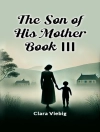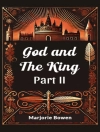Ulysses James Joyce – James Joyce’s astonishing masterpiece, Ulysses, tells of the diverse events which befall Leopold Bloom and Stephen Dedalus in Dublin on 16 June 1904, during which Blooms voluptuous wife, Molly, commits adultery. Initially deemed obscene in England and the USA, this richly-allusive novel, revolutionary in its Modernistic experimentalism, was hailed as a work of genius by W. B. Yeats, T. S. Eliot, and Ernest Hemingway. Scandalously frank, wittily erudite, mercurially eloquent, resourcefully comic, and generously humane, Ulysses offers the reader a life-changing experience.In the past, Ulysses has been labeled dirty, blasphemous, and even unreadable. None of these adjectives, however, do the slightest justice to the novel. To this day it remains the modernist masterpiece, in which the author takes both Celtic lyricism and vulgarity to splendid extremes. It is funny, sorrowful, and even (in a close-focus sort of way) suspenseful. And despite the exegetical industry that has sprung up in the last 75 years, Ulysses is also a compulsively readable book.William Blake saw the universe in a grain of sand. Joyce saw it in Dublin, Ireland, on June 16, 1904, a day distinguished by its utter normality. Two characters, Stephen Dedalus and Leopold Bloom, go about their separate business, crossing paths with a gallery of indelible Dubliners. We watch them teach, eat, stroll the streets, argue, and (in Blooms case) masturbate. And thanks to the books stream-of-consciousness technique which suggests no mere stream but an impossibly deep, swift-running river were privy to their thoughts, emotions, and memories. The result? Almost every variety of human experience is crammed into the accordian folds of a single day, which makes Ulysses not just an experimental work but the very last word in realism.I hold this book to be the most important expression which the present age has found; it is a book to which we are all indebted, and from which none of us can escape. T. S. Eliot What is so staggering about Ulysses is the fact that behind a thousand veils nothing lies hidden; that it turns neither toward the mind nor toward the world, but, as cold as the moon looking on from cosmic space, allows the drama of growth, being, and decay to pursue its course. Carl Jung The greatest novel of the 20th century. Anthony Burgess
Über den Autor
James Joyce, Irish novelist, noted for his experimental use of language in such works as Ulysses (1922) and Finnegans Wake (1939). Joyce’s technical innovations in the art of the novel include an extensive use of interior monologue; he used a complex network of symbolic parallels drawn from the mythology, history, and literature, and created a unique language of invented words, puns, and allusions.James Joyce was born in Dublin, on February 2, 1882, the eldest of ten surviving siblings, two other died of typhoid. His father was John Stanislaus Joyce, an impoverished gentleman, who had failed in a distillery business and tried all kinds of other professions, including politics and tax collecting. Joyce’s mother, Mary Jane Murray, was an accomplished pianist, whose life was dominated by the Roman Catholic Church. In spite of their poverty, the family struggled to maintain a solid middle-class facade.From the age of six Joyce, was educated by Jesuits at Clongowes Wood College, at Clane, and then at Belvedere College in Dublin (1893-97). In 1898 he entered the University College, Dublin. Joyce’s first publication was an essay on Ibsen’s play When We Dead Awaken. It appeared in the Fortnightly Review in 1900. At this time he also began writing lyric poems.After graduation in 1902 the twenty-year-old Joyce went to Paris, where he worked as a journalist, teacher and in other occupations under difficult financial conditions. He spent a year in France, returning when a telegram arrived saying his mother was dying. Not long after her death, Joyce was traveling again. He left Dublin in 1904 with Nora Barnacle, a chambermaid who he married in 1931.Joyce published Dubliners in 1914, A Portrait of the Artist as a Young Man in 1916, a play Exiles in 1918 and Ulysses in 1922. In 1907 Joyce had published a collection of poems, Chamber Music.












